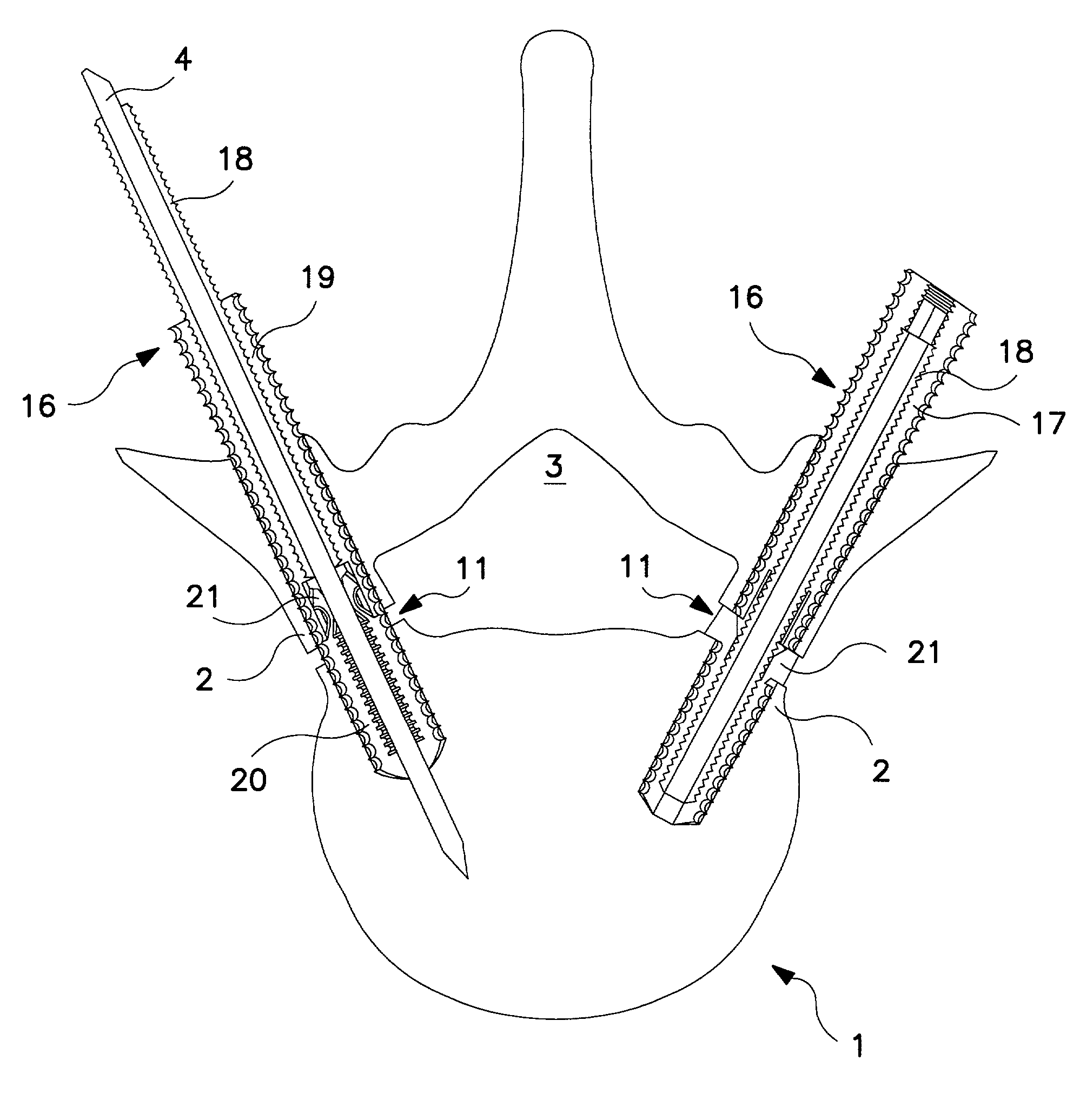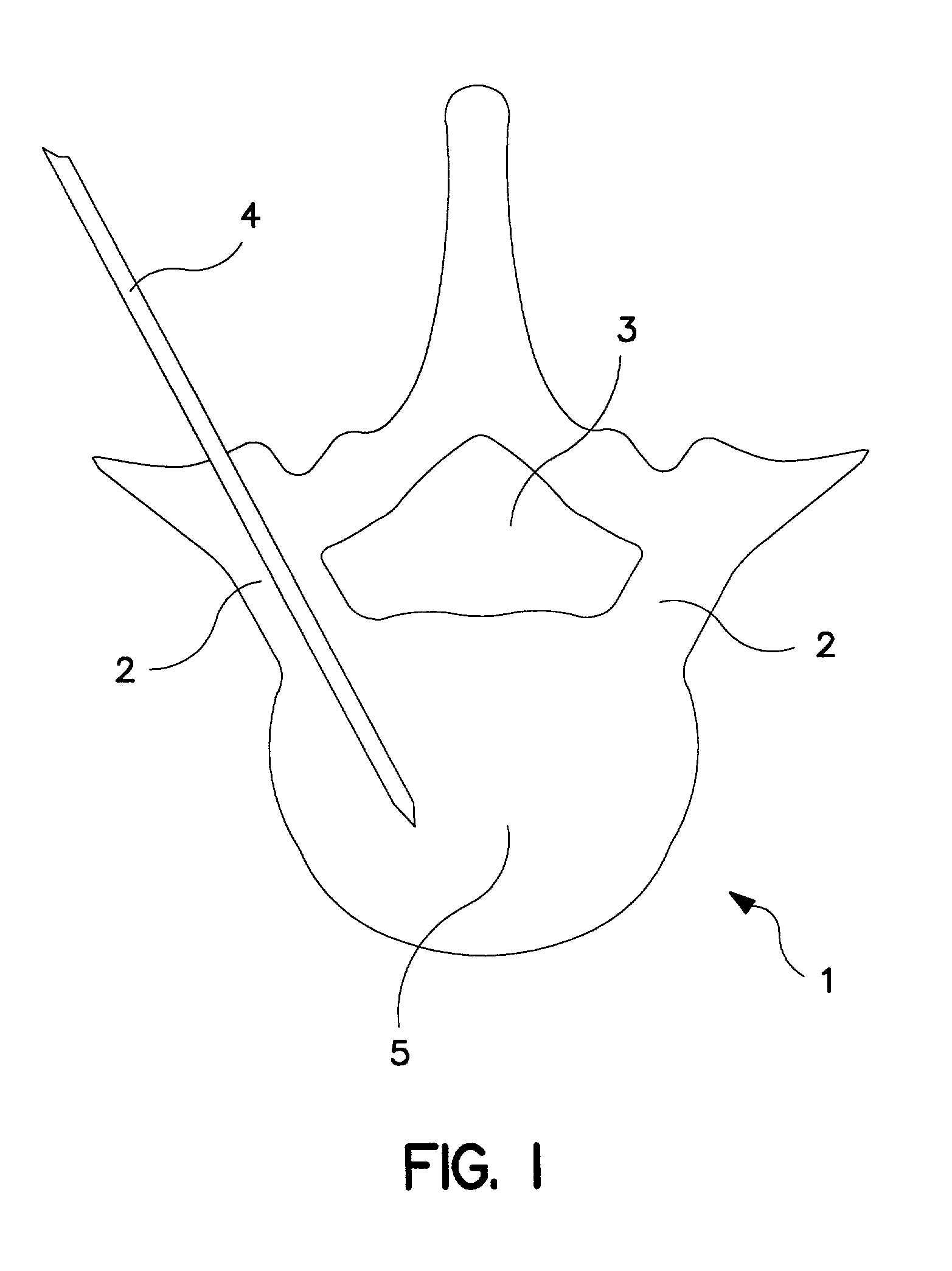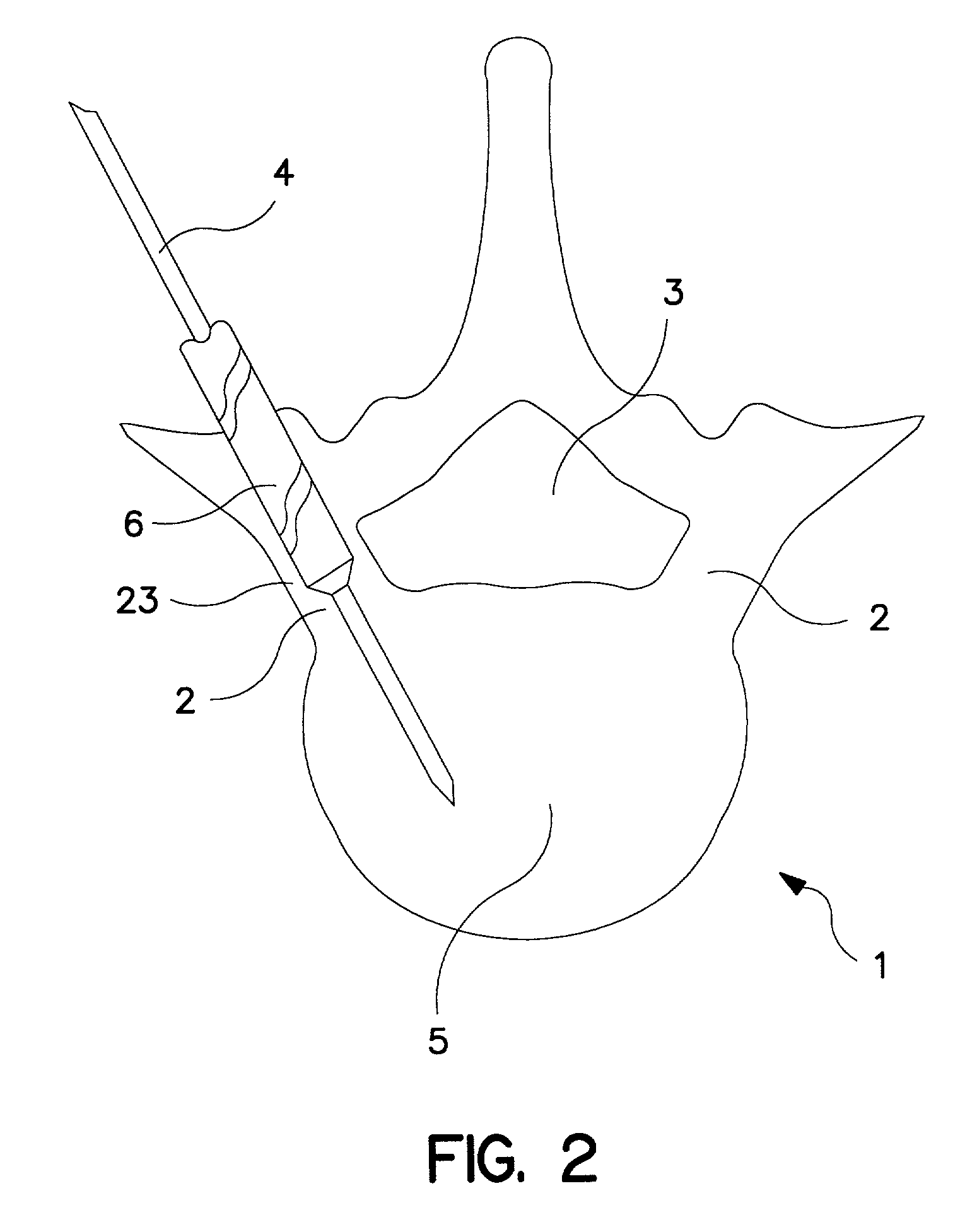Percutaneous technique and implant for expanding the spinal canal
a percutaneous technique and spinal canal technology, applied in the field of spinal surgery, can solve the problems of scar tissue around the nerves, recurrent pain, back muscle dysfunction and pain, etc., and achieve the effect of relieving pressure on the spinal nerves, reducing scar tissue, and being safe and permanen
- Summary
- Abstract
- Description
- Claims
- Application Information
AI Technical Summary
Benefits of technology
Problems solved by technology
Method used
Image
Examples
Embodiment Construction
[0052]Referring now to the drawings, where like numeral indicate like elements, there is shown in FIG. 1 a cross section of a vertebra 1 having a vertebral body 5, spinal canal 3 and pedicles 2. Also shown is a guide wire 4 inserted into a central portion of the left pedicle 2 to enter the vertebral body 5.
[0053]FIG. 2 illustrates the cross section of the vertebra 1 of FIG. 1, showing a cannulated drill 6 passing over the guide wire 4, drilling a passage in the central portion of the left pedicle 2 but leaving intact outer wall 23 of the left pedicle 2.
[0054]FIG. 3 illustrates the cross section of the vertebra 1 of FIG. 1 following completion of the drilling procedure of FIG. 2, showing a passage 7, or hollow tunnel, spanning the central portion of the left pedicle 2, leaving intact an outer bony wall 23 of the left pedicle 2.
[0055]FIG. 4 illustrates the cross section of the vertebra 1 of FIG. 1 with a side-cutting instrument 8 within the passage 7 of the left pedicle 2. The side-cu...
PUM
 Login to View More
Login to View More Abstract
Description
Claims
Application Information
 Login to View More
Login to View More - R&D
- Intellectual Property
- Life Sciences
- Materials
- Tech Scout
- Unparalleled Data Quality
- Higher Quality Content
- 60% Fewer Hallucinations
Browse by: Latest US Patents, China's latest patents, Technical Efficacy Thesaurus, Application Domain, Technology Topic, Popular Technical Reports.
© 2025 PatSnap. All rights reserved.Legal|Privacy policy|Modern Slavery Act Transparency Statement|Sitemap|About US| Contact US: help@patsnap.com



